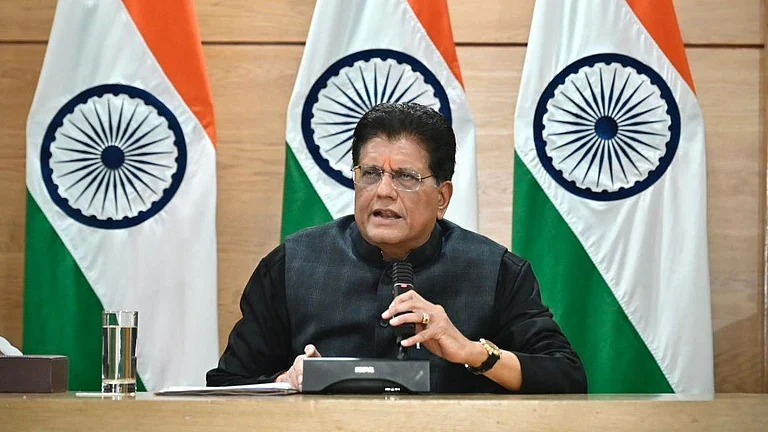What do you think will be the role of start-ups in the Viksit Bharat goal?
I think the youth of the country have a huge role to play in achieving that goal. The prime minister believes that our young men and women, particularly with the huge talent and skill that they have, and their aspirations for a better quality of life is going to drive the country to higher levels of prosperity. We already have grown from 400 start-ups to 1,50,000 in the past nine years.
But we believe that as more technology comes into play, we will probably achieve a million start-ups in the next 10 years. They will provide the impetus to job creation, to entrepreneurship.
What is the government doing to promote start-ups beyond metros?
It’s a collective effort between the Centre and the states. More and more states are encouraging start-ups. Today we have 95% of the districts in the country having one or more start-ups. Certainly, Mumbai-Pune, Bengaluru-Hyderabad, Delhi-Gurgaon regions will obviously attract more start-ups. The venture capitalists are there. There is an existing ecosystem.
But from the point of view of the government, we started with the Atal Tinkering Labs, progressed to incubation centres. We have a thousand incubation centres all across the country. I visited an incubation centre by Deshpande Foundation in Hubli.
It was a delight to see the kind of new ideas that they were working on. Similarly, I visited Manipal Institute of Technology incubation centre in Sikkim. I was amazed to see the enthusiasm of the young men and women there.
Even Sidbi [Small Industries Development Bank of India] is reaching out to Tier II and III cities in a bigger way. We have launched Bhaskar as a one-stop portal for mentoring, connecting new ideas with venture capitalists or with start-up funds.
And my sense is digitalisation, the advent of low-cost affordable data, internet penetration, the rapid rollout of 5G—all of these are enablers which are driving our young men and women to think out of the box and engage with new ideas.
Should India consider leveraging its pension fund to build a supportive ecosystem for tech sovereignty?
I think pension funds or insurance capital is best left to them to decide how to deploy. That money belongs to employees. And the government would not like to micromanage or direct how that money should be utilised or invested.
But the government on its own, through our various start-up funding initiatives, is working towards supporting deep tech.
A lot of Indian family offices have started looking at deep-tech sector. They are seeing good returns. They see that if the foreign funds are looking at investing in these ventures, clearly there must be good returns to be had. So more and more Indian investors are coming into the play.
Are there any plans to encourage corporates to invest more into start-ups?
I have been taking this up with almost all the big corporates, particularly through CII [Confederation of Indian Industry], Ficci [Federation of Indian Chambers of Commerce and Industry] and their members. I have had success in terms of each of these institutions now have a dedicated start-up committee.
But again, the decision to invest will have to be an independent decision. Government will never micromanage.
Are there any plans to re-look at production-linked incentive schemes to help manufacturing start-ups in new age areas?
PLI schemes are meant to kick-start certain champion sectors. These are for a short period of time to give them that initial impetus. And we expect industry to stand on its own legs after that.
In terms of start-ups, I think for sectors that the start-up system is usually working in, these are innovative, new ideas. Whereas PLI scheme is focused on traditional manufacturing ecosystem. So, both are completely two different ecosystems.
What role can the government e-marketplace play in helping start-ups, especially those located in Tier-II and Tier-III cities?
Through GeM, the government e-marketplace, we are making an effort to encourage more and more start-ups into the GeM ecosystem. We are even willing to help them register, do the paperwork and create the back end. to be able to be a part of GeM and supply to government.
We have liberalised a number of the qualification criteria to supply to government for the start-ups and women entrepreneurs. Similarly, in many areas, we have reduced
the charges for patents, copyright and trademark.
In terms of supporting specific e-commerce sites, I think our effort is to encourage them to look at start-ups and their innovative ideas.
But personally, I think, what happened in the Vajpayee government in the 1999–2000 and 2001–02 period—the IT [information technology] industry was allowed to flourish without government interference. And today it is a $250bn industry.
So, I think this success story of start-ups is very similar, where the government is handholding them, but not micro-managing them.













